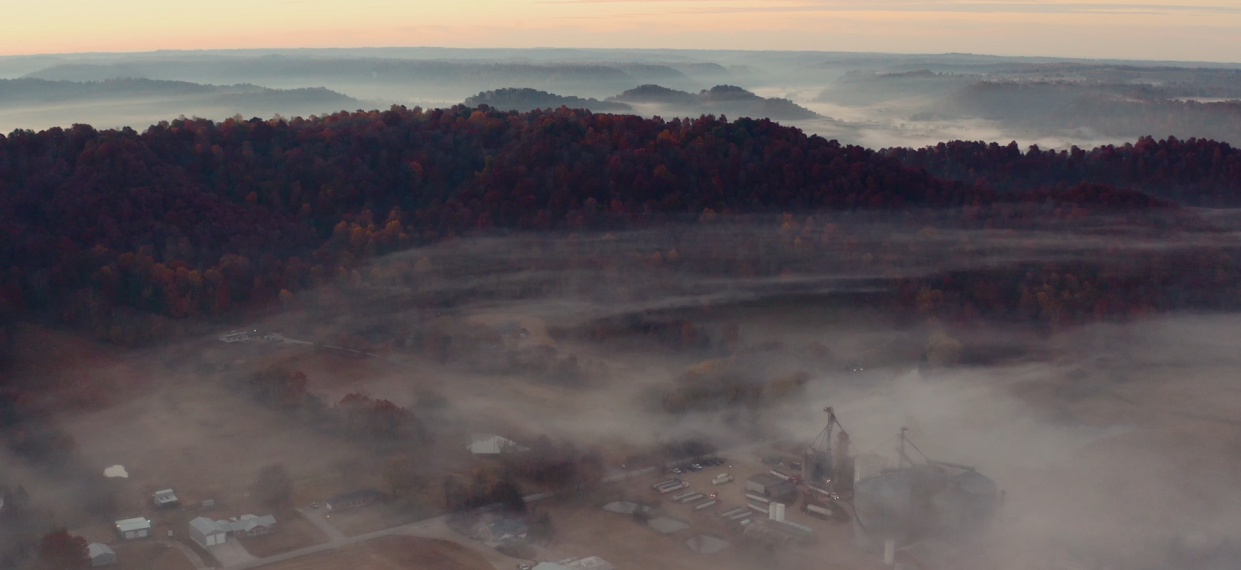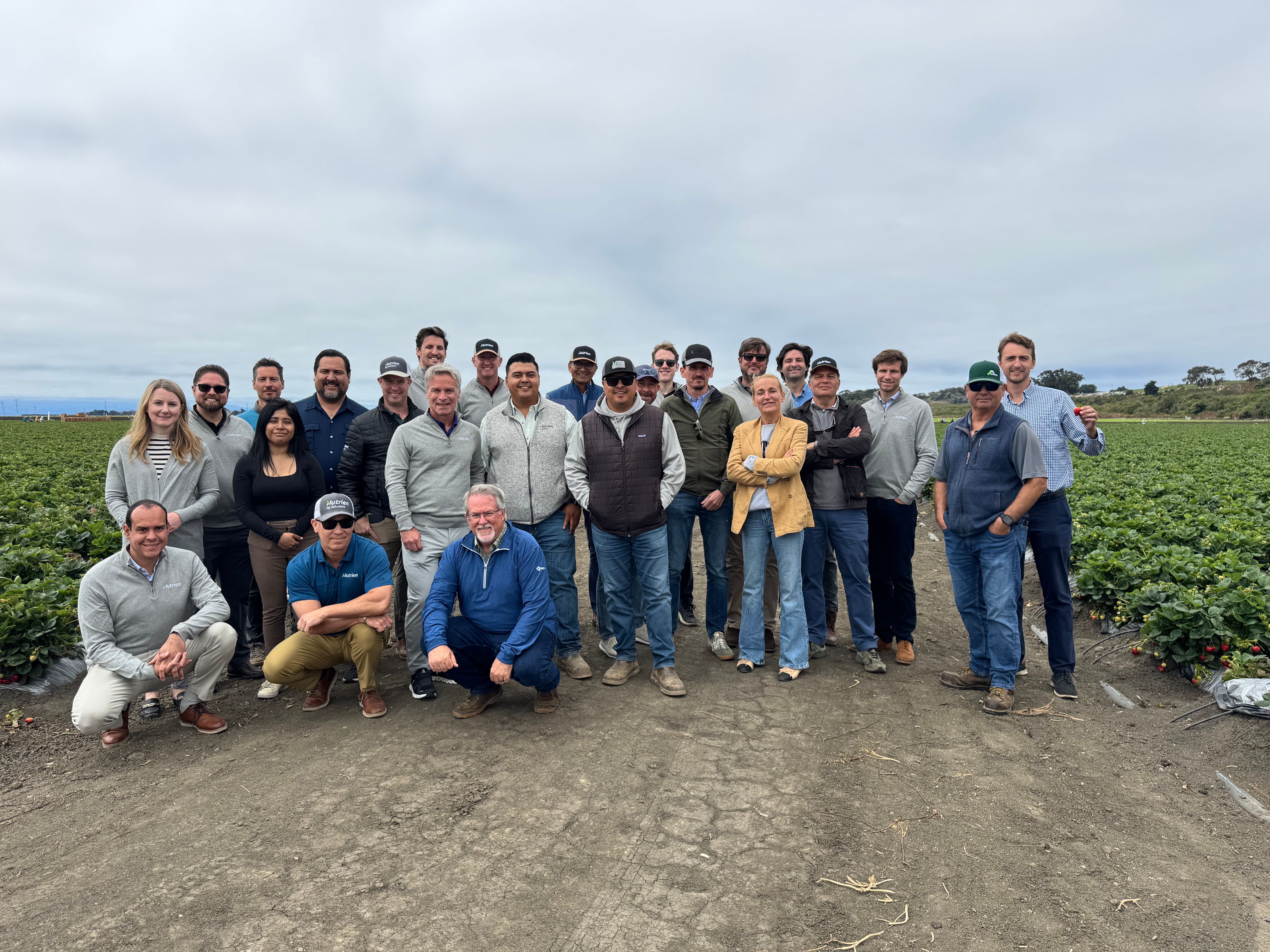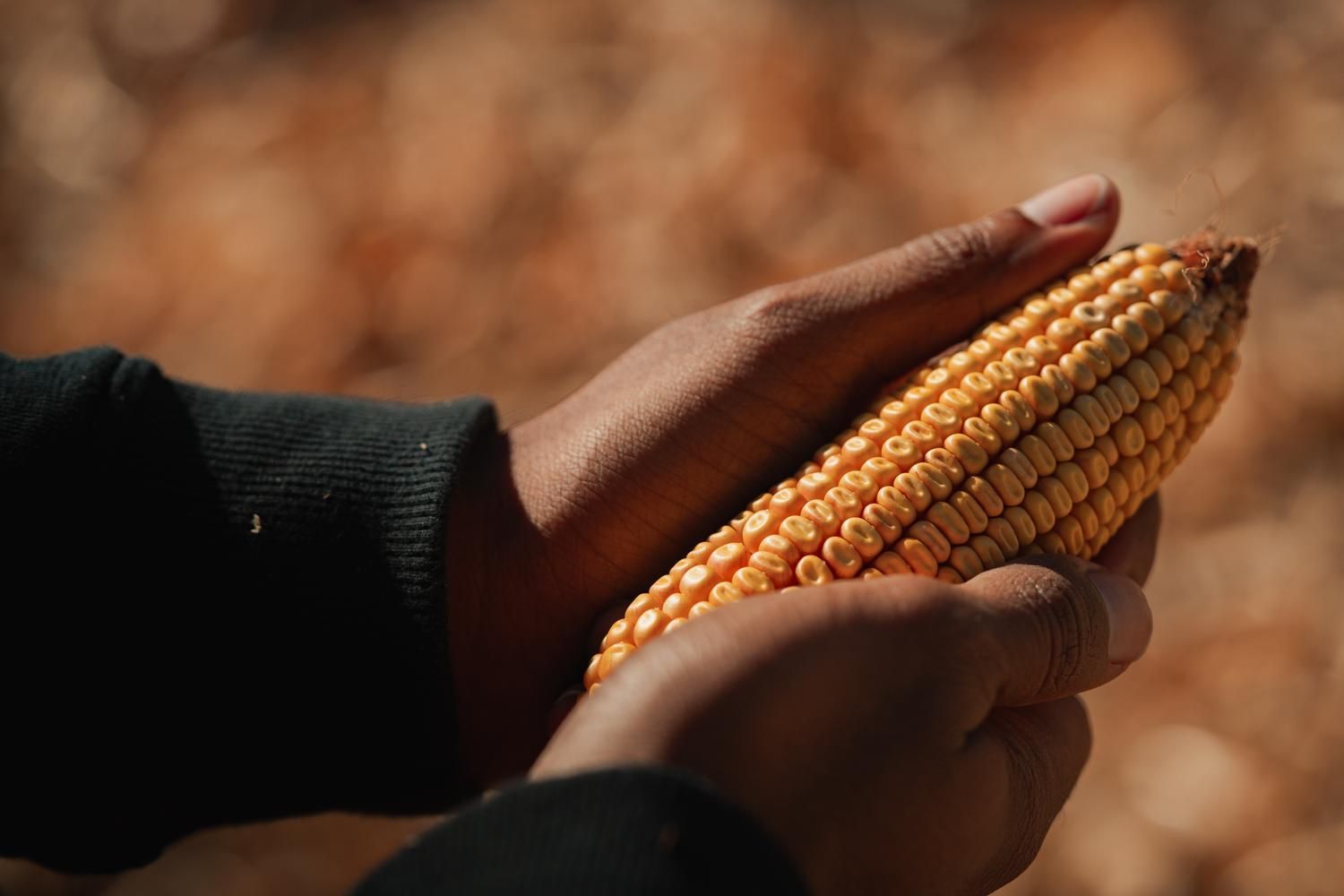
The Miracle Mash: How Homestead Family Farms Is Making Bourbon Sustainable
Kentucky is home to nearly 70 distilleries that crank out a purported 95% of the world’s bourbon. The Bluegrass State is billed as a whiskey lover’s dream, and it wouldn’t be possible without high-quality corn – a critical ingredient in the grain mash that forms the foundation for bourbon.
The corn comes from places like Homestead Family Farms, an operation in central Kentucky whose 16,000 acres of non-GMO corn ends up at distilleries crafting Barton’s 1792 and Bulleit. The sixth-generation family farm also grows wheat and soybeans. Although Homestead currently supplies only its corn to distilleries, it’s looking to provide wheat – a secondary bourbon-mash ingredient – to distilleries soon.
In April 2022, Aaron Reding, Managing Partner of Homestead, passed away after a long battle with ALS. Despite his diagnosis, Aaron remained very involved in the operations of Homestead Family Farms and never lost his passion for agriculture. Even though Homestead made succession plans after Aaron’s diagnosis, he still left behind large shoes to fill and a gap in the lives of those he worked with. Now, the employees at the farm work every day to preserve Aaron’s legacy by keeping operations running and finding new opportunities to expand the business – just as Aaron would.
“Aaron was an exceptional individual that never complained about his circumstances and had great faith. He was and still is an inspiration to anyone that was blessed with the opportunity to know him,” says Joe Medley, Facility Manager for the Nutrien Ag Solutions Lebanon Kentucky branch. “I was blessed and honored to be able to work with Aaron and call him my friend.”
Whatever the crop, or the mash it goes into, J.D. Miracle, Homestead’s Lead Agronomist, plays an integral role in production decisions. And by working with partners like Nutrien, Homestead continues to refine its roadmap to sustainably supply Kentucky’s bourbon industry for generations to come.
A self-described stickler for sustainability and efficiency, Miracle has helped advance Homestead’s move toward both, which he says go hand in hand. Homestead works with Joe and Martie Templeton, Nutrien’s U.S. East Regional Manager for Sustainable Ag. Nutrien has partnered with Homestead since the early 2000s, with Medley servicing the farm since 2010. As the world’s largest provider of crop inputs and services, Nutrien produces potash, nitrogen and phosphate products for operations like Homestead – one of some 500,000 growers that receive more than 27 million tons of products for agricultural, industrial and feed usage.
“They’ve always given us good support,” Miracle says. “Anytime we’ve had questions or concerns around trying to find products, or if I’ve had to ask Joe to find product that’s hard to get, he makes it happen.”
A Crop-Ton of Overlap
Homestead hangs its hat on sustainability, pursuing environmental certifications and early adoption of decarbonization practices. Since 2010, Homestead has worked with Validus Verification Services to undergo environmental and safety reviews. That made the farm a natural fit when Nutrien rolled out its pilot carbon program in 2020. Like the Validus certification, the decision to pursue Nutrien’s Carbon Program was initiated by Aaron whose passion for agriculture included environmental stewardship, and both Miracle and Brian Kamuf, Homestead’s General Manager, were eager to pursue the project.
“We’re going to see more and more decarbonization, so we wanted to adopt it early and see what the process involved,” he says. “When we sat down and really started analyzing things, we believe that the carbon program is a direction that’s going to lead us toward finding more efficiencies and better ways to operate.”
Templeton was instrumental in getting the program running. Because farmers have always been stewards of the land, carbon programs that assist them in adopting new environmental practices have quickly spread throughout the agriculture industry. In order to offset their own emissions, businesses, government, and investors can purchase the sequestered carbon thus offsetting the farmer’s costs of implementing new practices. Awareness is set to increase even more: The recently passed Inflation Reduction Act gives another $8.45 billion to the Environmental Quality Incentives Program, which incentivizes regenerative ag practices among growers.
Nutrien’s program leverages established protocols from government programs and standardizing bodies, including Climate Action Reserve, Verra and Gold Standard. The company formed programs with execution partners like the Soil and Water Outcomes Fund and the Ecosystem Services Market Consortium (ESMC), with Nutrien a founding member in ESMC. The company works side-by-side with growers to learn what works for their acreage, generating carbon assets that can be scaled and monetized to inform Nutrien’s comprehensive carbon program.
Sustainable practices adopted by Homestead include using slow-release nitrogen fertilizer on the farm’s corn and wheat, as well as transitioning to more-efficient liquid fertilizers, which require less application. On both crops, Homestead now uses Nutrien’s ESN® Smart Nitrogen which features flexible polymer coating that encapsulates a 44% nitrogen urea granule. ESN releases slowly, thus decreasing fertilizer waste. Under the program, Homestead has continued to use minimum-till practices, and it’s planting more wheat as a cover crop. They also built waterways to slow drainage and keep water in place.
All of that requires a lot of data entry, but it doesn’t faze Miracle.
“It’s been a fairly easy, seamless process,” he says. “We were already collecting data off of our planters, sprayers, and combines before we enrolled in this program. It was pretty easy to just go in there and pull that data out. I’m using it in other places for other agronomic concerns, so I didn't have to do anything different or special.”
Make It a Double: Distilleries Benefit, Too
Early adoption of the program has helped Homestead brandish its environmental credentials, but it isn’t the only player in the value chain doing this. In 2021, global alcohol distributor Diageo opened a carbon-neutral distillery in Lebanon, Ky., some 20 miles east of Homestead’s main office. The farm supplies corn to the new facility, who produces the well-regarded Bulleit bourbon.
Diageo’s distillery can produce up to 10 million proof gallons per year. It operates on 100% renewable energy, with exclusively solar-powered exterior lighting and electrode boilers that avoid direct greenhouse gas emissions. And it sources its corn exclusively from Homestead.
From growers to end producers, the sustainability message is spreading.
“Sustainability and efficiency start blending together,” Miracle observes. “We’re not the only ones out here doing this. Anything we can do to improve efficiency, that’s what we’re going to do.”
Nutrien is on the same page. In total, the company is committed to helping growers adopt sustainable and productive agricultural products and practices across 75 million acres worldwide.
“One thing that differentiates our program from others is that we work directly with the crop consultant,” Templeton says. “They already have an established relationship with the grower, so it’s a natural fit to work with growers on the carbon project, as well.”
Miracle agrees, especially since it’s effective for the business.
“It’s a direction that’s going to lead us in the future,” Miracle says. “We’re just finding more efficiencies and better ways to do things. In our case, improving our efficiencies also allows us to improve the environment and continue sustainably farming into the future.”
Related stories


